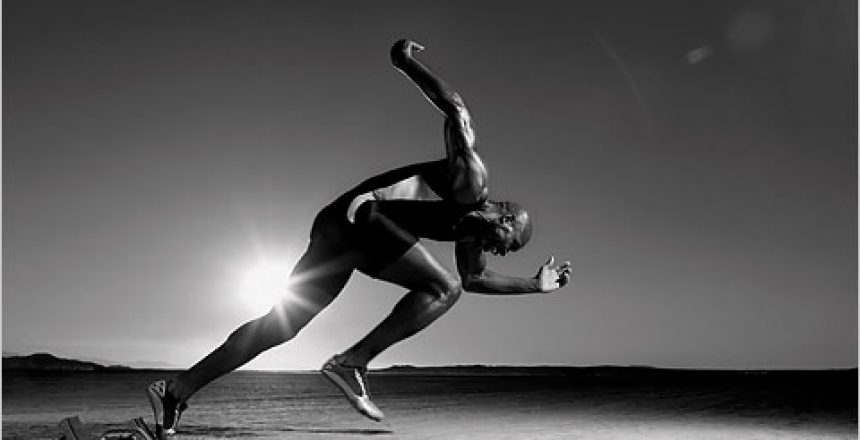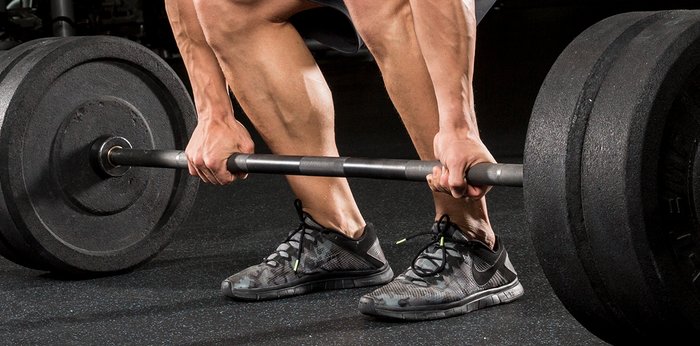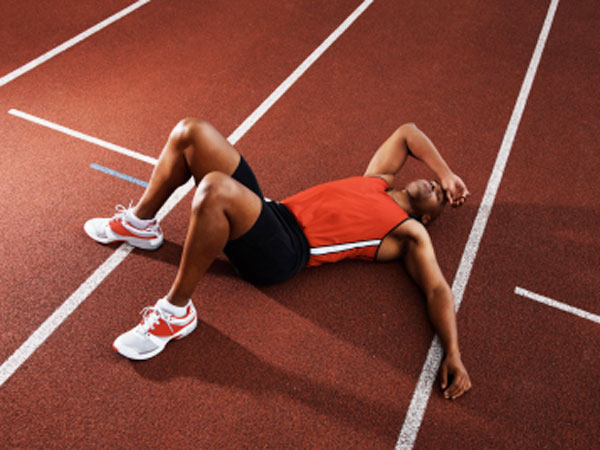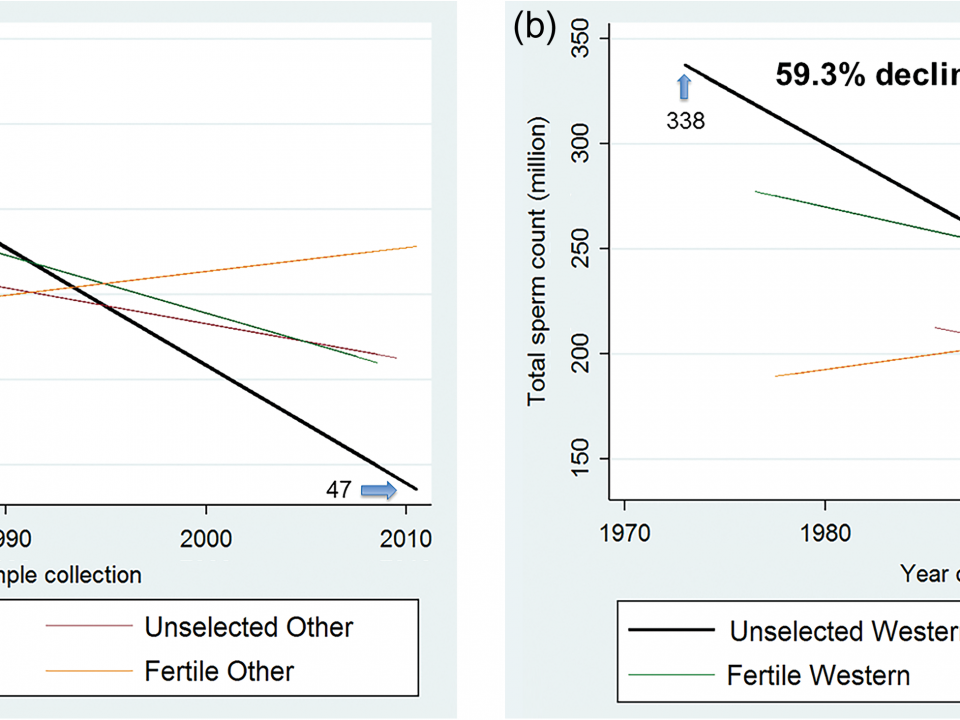Why many people are deficient in vitamin D
Vitamin D has been in the news a lot over the past five years or so; it’s importance to human health was already recognized, but the realization has hit home that many people are deficient, and this has occurred because of man-made conditions. Let’s look at how male sexuality, athletics, and vitamin D fit together.
One condition, one that has taken place mainly since the Industrial revolution, is that most people no longer work outside in the sunshine, the main source of vitamin D, but indoors and away from the sun. The second condition is that we have all been told over the past several decades to avoid direct sunlight, for fear of skin cancer, so people have been deliberately avoiding sun exposure. As a result, many people are frankly deficient in vitamin D. Besides these reasons, depending on time of year and latitude, and it often be difficult to get enough sunshine to produce vitamin D.
How vitamin D affects male sexuality
New discoveries are being made constantly in vitamin D research, such as finding vitamin D receptors in tissues where they were heretofore unknown. Here’s a great example of finding vitamin D receptors, as well as vitamin D metabolizing enzymes, in a place where they were previously not known to occur: Vitamin D receptor and vitamin D metabolizing enzymes are expressed in the human male reproductive tract. An excerpt from the abstract:
The vitamin D receptor (VDR) is expressed in human testis, and vitamin D (VD) has been suggested to affect survival and function of mature spermatozoa….
On the basis of the marked expression of VDR and the VD metabolizing enzymes in human testis, ejaculatory tract and mature spermatozoa, we suggest that VD [vitamin D] is important for spermatogenesis and maturation of human spermatozoa.
Vitamin D is important in the male reproductive tract and for in male fertility. Indeed, Vitamin D is positively associated with sperm motility and increases intracellular calcium in human spermatozoa. And it’s been shown that vitamin D is necessary for male reproductive functions in rats.
Vitamin D affects erectile function
So we see that vitamin D affects male fertility. Does it also affect male sexual function? Some researchers believe it does. Noted vitamin D scientist William B. Grant collaborated on a review article that argues for the importance of D for erectile function: Does vitamin D deficiency contribute to erectile dysfunction? Quote: “We conclude that VDD [vitamin D deficiency] contributes to ED [erectile dysfunction]. This hypothesis should be tested through observational and intervention studies.” Vitamin D is closely and negatively related to diabetes and obesity, and these are in turn related to male potency.
A study was done on patients with erectile dysfunction, Vitamin D and Erectile Dysfunction. The scientists found that “a significant proportion of ED patients have a vitamin D deficiency and that this condition is more frequent in patients with the arteriogenic etiology. Low levels of vitamin D might increase the ED risk by promoting endothelial dysfunction. Men with ED should be analyzed for vitamin D levels…”
Testosterone and vitamin D
Vitamin D influences male sexuality through another channel as well, that of testosterone. There is a strong association between vitamin D and testosterone levels: Association of vitamin D status with serum androgen levels in men. This study concludes: “Androgen levels and 25(OH)D [vitamin D] levels are associated in men and reveal a concordant seasonal variation.” The seasonal variation reported indicates that sunshine, hence vitamin D, is an important influence on T levels. So testosterone is one route by which D may impact male sexual potency.
It also follows that if you are trying to build muscle mass, optimum vitamin D levels will be necessary to ensure proper levels of T.
Ensuring proper vitamin D levels
Don’t think that because you do outdoor sports or some similar activity that you get enough vitamin D. In a recent study it was found that about one third of NCAA athletes in Southern California, the land of sunshine, had low vitamin D levels; athletes with dark skin and males were much more likely to be at risk of D deficiency. Quote: “studies examining muscle biopsies from patients with low vitamin D levels have demonstrated atrophic changes in type II muscle fibers, which are crucial to most athletes. Furthermore, insufficient 25(OH)D levels can result in secondary hyperparathyroidism, increased bone turnover, bone loss, and increased risk of low trauma fractures and muscle injuries. Despite this well-documented relationship between vitamin D and athletic performance, the prevalence of vitamin D deficiency in NCAA athletes has not been well studied.”
So, vitamin D is necessary for both strong muscles and strong bones.
Supplementation is one way to ensure optimal vitamin D levels. The Endocrine Society recommends screening of vitamin D levels for those at risk, and that 4,000 IU of vitamin D daily is a tolerable upper intake level for adults, “not to be exceeded without medical supervision.”










18 Comments
Nice article! Try a SunFriend to prevent vitamin D deficiency naturally, scientifically, from the sun!
Hello Dennis,
Thanks for your blog. I’ve learned a lot from your blogging and have benefited immensely from your nutrition and exercise advice.
I was wondering if you were aware of any nutritional methods or supplements that could slow hair loss in men.
Thanks.
John, I sincerely appreciate hearing that you’ve benefited from the blog. As for hair loss, I do know that a number of nutritional deficiencies can cause it, although if you have garden-variety male pattern baldness it could be more difficult to say. Hypothyroidism and low iron are a couple of things that a doctor could check out. (Don’t take iron without a demonstrated deficiency.) If you’ve been reading my stuff I’m guessing you already have a decent diet; too low protein in the diet can cause hair loss. Zinc, magnesium, and vitamin D could be factors, and those are things that one can try on one’s own. Hope that helps.
Thanks for your reply Dennis.
Yes, I have a solid diet, but I’ve never had blood work done since improving my diet. I’ll look into getting tested to see if I have any deficiencies.
Hair loss isn’t a huge deal for me, and I’m definitely not willing to take some of the pharmaceuticals out there to try to treat it. I’d like to avoid pharmaceuticals in general unless necessary for more serious conditions and ailments, and the current drugs out there for hair loss like Propecia seem to have pretty bad hormonal side effects. Maximizing health, longevity, and cognitive ability are my priorities over any cosmetic aspects.
Going bald? Own it. Shave it all off.
Thin on top, grey on the sides = time for a clean sweep.
Vit.D can be vexing. I’m 65, live in Florida. I wear a T-shirt and shorts and spend at least 12 hours in the sun per week if not 16 (I cycle 8/12 hours, walk 4, lift three times a week. Not overweight.) I take 5000IU of D3 a day in oil. My level last week was 42.8. Two years in August it was 40. So I am going to take the shirt off more — really try to get 15 minutes a day of full sun — and add another 1,000 IU at night and get tested again in June. My goal is 50.
There was an article debunking Vitamin D supplementation saying that the body dumps calcium or something to get rid of excess D. The point being that oversupplementation is bad. Is 4000IU daily really a good number?
So, I just checked Mayo and you’d need 50000IU’s to cause that? hypercalcemia?
Ok, time to up the dose. When’s the best time to take D and with or without food? With Vitamin K?
4,000 IU a day is a moderate amount, I’d say, depending on body size and how much sun you get. I’ve seen a few “debunking” articles over the years, and I’ve never found them convincing. In the old days, they used to give large doses annually or perhaps more often to deficient and confined people (old folks home, e.g.) D seems to be absorbed best with food, but I take it first thing with my coffee and my D level is fine.
Thanks for sharing this excellent article again.
I’d like to ask, what is your stance on tanning beds as an alternative to vitamin D supplementation?
Hi Vincent, I think tanning beds can be OK so long as they’re not overdone.
I have a data point. Since last October I’ve indoor tanned weekly for 10-15 minutes resulting in a vitamin D, 25-Hydroxy result of 37.7 measured last week. I’ve taken no supplements and live at too high a latitude to generate vitamin D from the winter sun.
I used the tanning bed with the highest UVB rays, which is actually the cheapest. The tanning salon markets the high-UVA beds as “bronzing” while marketing the high-UVB beds as “burning”. With a military discount it only cost $5/session and was a nice, relaxing experience … kind of like getting a massage.
I began taking vitamin D supplements about 8 years ago as a way to cure the neck and back pain I would get each winter starting in November. While it worked to ease those muscular pains and gave me somewhat increased energy, I would also get really bad itching in different areas of my skin with the supplements.
With the tanning bed this winter I’ve had no pains, high energy, and none of the itching that the supplements gave me.
As I mentioned in another comment, I’m a 5’11”, fairly muscular 205 lb 44-yo male.
Oh yeah and I’m a Caucasian who tends to tan pretty well without burning easily.
I stopped indoor tanning in May and started intentionally laying out in the sun once a week. About 15 minutes per side.
After a couple months of natural tanning my Vit D is about the same, 35.5. I guess I expected it would be higher from natural sun (I’ve heard of lifeguards with 60-70) but this level seems fine and in well above deficiency levels.
But 30 minutrs a week is very little exposure. I try to do 30 a day now. My D value was 60 in June, with a light tan.
Great to hear about your iron progress.
That’s a good data point … definitely “lifeguard numbers”.
Should’ve said that I was tan from a good long vacation in pretty sunny weather in May and had been supplementing with liquid D drops for months prior to that. And maybe my numbers are naturally higher, as I’m not THAT tan.
I’ve thought that maybe I’ll start up with tanning beds in winter here, but not before I have my values checked again.
(Posting from my lawnchair in the sun fwiw.)
I once talked to a biochemistry professor and the topic came to sunlight and vitamin D.
He said that medicine had sliced and analysed the human body down to physical structures of less than a mm³, but we still only have a crude, superficial understanding of our body chemistry – he said it is unlikely that researchers will find new tissues or even organs (we’re down to things smaller than the Vomeronasal organ, which has the size of a grain of sand in most humans) – but practically certain that there will be revolutionary new insights in our metabolic chemistry:
While the relationship of sunlight and vitamin D is clear and established, there could be many more important effects of sunlight we currently know nothing about.
What I want to say:
Do not be tempted to think you can safely avoid sunlight by just taking your vitamin D pills.
Humans evolved being exposed to full-spectrum sunlight, so there very well could be other very important effects from it for healthy metabolic functioning we still have no clue about.